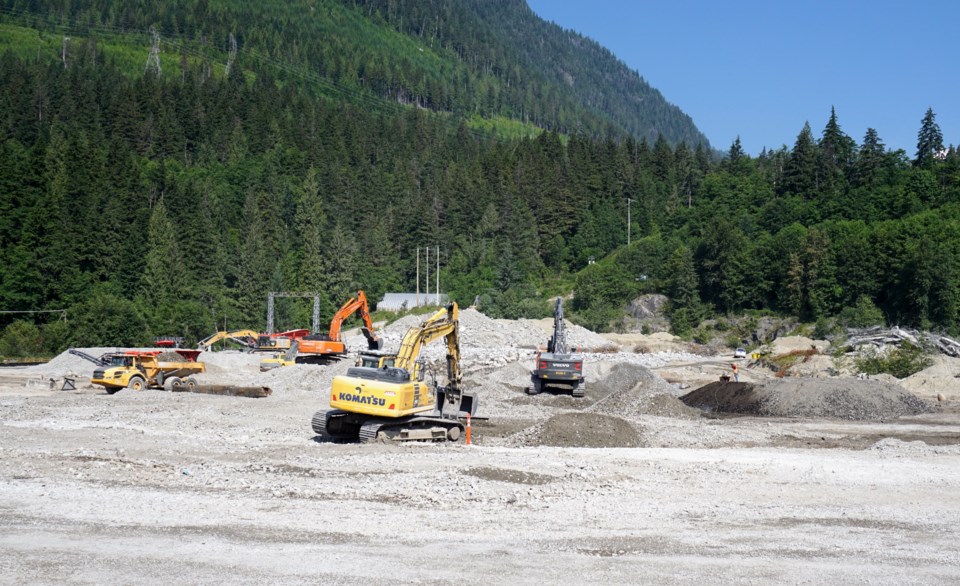What did we learn in 2023 about new NDP leader David Eby, and his government’s stated intention of meeting our climate obligations?
As My Sea to Sky’s Tracey Saxby and her colleagues show, the government’s support for Liquefied Natural Gas (LNG) renders its climate plans “glaringly incoherent.” In a word: delusional.
Central to this flawed, outdated economic development strategy is support for Woodfibre LNG (WLNG), a fracked gas liquefaction project dating back to the BC Liberal government of a decade ago. It couldn’t be more disjointed from the District of Squamish’s economic development plans, made in consultation with the community and focusing on the future: green economy, clean tech, recreational technology and sustainable tourism.
For anyone new to town or to the WLNG project, despite its name no biomass or forestry-related products are involved. In fact, like “natural gas”— which many say should be called “fossil gas”—there’s nothing wholesome or green about Woodfibre LNG. It simply inherited the name of the former pulp and paper mill on Howe Sound south of Squamish.
Fracked fossil gas requires vast amounts of energy to be liquefied, and then shipped in tankers through our recovering marine environments, to be burned for fuel in Asian countries, creating more heat-trapping carbon pollution and offshoring our accountability for it.
In addition, the volume of methane gas leaking into the atmosphere during extraction and transport is much greater than we’ve been led to believe. WLNG claims of "net zero" only apply to the liquefaction process at the Woodfibre site, but the upstream and downstream processes produce vast amounts of climate-warming emissions.
It’s like a cigarette factory implementing a no-smoking policy and then claiming that it is a “zero lung cancer” facility!
Aside from the climate and health impacts, hundreds of workers are already in town and more to come—and they need accommodation.
WLNG has acquired a "floating hotel" to be moored near the Woodfibre LNG site, but gas supplier FortisBC is proposing to house its workers in a work camp near the new Capilano University campus.
撸奶社区council will vote on whether to approve this request early this year.
Either way, the most likely outcome is to inject hundreds of workers into a local housing market already in crisis, with disastrous results.
B.C. is lining up as a key battleground in the fight for climate leadership and a livable planet, with the United and Conservative parties playing politics—using the affordability crisis as a smokescreen—and supporting the government’s greenwashing of LNG.
New fossil fuel projects grow the problem we need to solve. Life will become even less affordable when we have to clean up the mess that LNG and other fossil fuel development will leave behind.
A billion dollars fighting wildfires this past summer, another billion rebuilding from the atmospheric river in 2021, on top of the billions of increased insurance premiums and critical adaptation measures to reduce flooding, landslide and other climate-related risks. These impact most families’ bottom line far more than any revenue-neutral price on carbon.
I wish it weren’t so, but global heating, climate change and extreme weather events are an existential threat to our children and grandchildren, more challenging than anything our human species has faced collectively.
Status quo and business-as-usual aren’t good enough—we need systemic change that takes care of people during the energy transition and creates jobs in the new green economy. In my experience talking to Sea to Sky residents, most people realize that this is the defining issue of our time.
We need our representatives and governments to start acting like it.
Jeremy Valeriote
BC Green MLA candidate, West Vancouver-Sea to Sky




